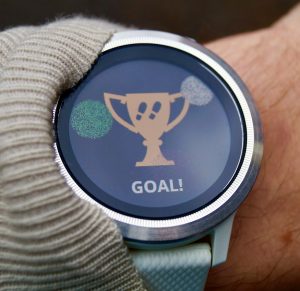Why Tracking Your Steps Helps Your Heart:
When it comes to heart health, small, consistent habits often have the biggest impact. One of the easiest ways to stay active and accountable each day is by tracking your steps. Whether you use a basic pedometer or a high-tech fitness tracker, monitoring your movement can help you stay motivated, meet daily goals, and build heart-healthy routines that last.
Why Steps Matter for Heart Health
Physical activity helps your heart pump more efficiently, lowers blood pressure, improves circulation, and can even help manage weight. Walking is one of the simplest and safest forms of exercise—and it’s effective.
Many people aim for 10,000 steps per day, but even small increases beyond your usual activity level can benefit your heart. According to health experts, just adding more steps throughout the day can reduce your risk of heart disease and improve overall cardiovascular health. You don’t need to run marathons—a brisk walk counts, too.
How a Step Tracker Keeps You Accountable
Using a pedometer or fitness tracker adds a layer of accountability to your wellness routine. You’re more likely to move when you can see your step count in real time.
Tracking tools can:
- Remind you to get up and move during long sedentary periods
- Show you how active you really are (or aren’t) during the day
- Help you set and reach realistic activity goals
- Provide encouraging feedback when you hit milestones
That little vibration or progress bar lighting up on your wrist? It’s a small nudge with a powerful message: You’re making progress!
Staying Motivated with Step Goals
Setting step goals can turn movement into a fun challenge. Whether you’re aiming for 5,000 steps, 10,000 steps, or simply trying to do better than yesterday, you’re more likely to stay engaged when you have a target.
Many fitness apps also offer:
- Daily and weekly activity summaries
- Challenges with friends or family
- Streaks and rewards for consistency
These features can give your movement meaning, especially on days when motivation is low.
Easy Ways to Add More Steps
You don’t need to carve out hours to get your steps in. A few simple adjustments to your daily routine can increase your count naturally:
- Park farther from the entrance at stores
- Take the stairs instead of the elevator
- Do a few laps around your house or yard during TV commercials
- Walk while talking on the phone
- Take a five-minute stroll after each meal
Each step adds up. Over time, those small efforts can lead to big changes in your heart health.
Start Where You Are
If you’re just getting started, don’t stress about hitting a big number right away. The goal is progress, not perfection. Use your tracker to understand your current activity level, then gradually build from there.
And as always, if you’re recovering from a heart event or managing a health condition, check with your doctor before beginning a new fitness routine.
It’s also important to Track Your Heart Rate.

